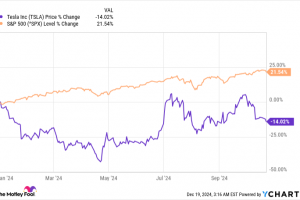
Reuters
It’s a great time to be a stock picker with the majority of the market now represented by passive index funds.
More passive investors means active investors can capitalize on opportunities in the stock market.
Here’s how to beat the stock market in 2024, according to Bank of America’s Savita Subramanian.
The outlook for outperforming the stock market has never been brighter as the investing world transitions away from active investing and toward passive investing, according to Bank of America equity strategist Savita Subramanian.
In a recent note to clients, Subramanian highlighted that there are structural tailwinds for active investors in 2024 that should help them beat the stock market.
“A brain drain (20% fewer sell-side eyeballs) and asset drain (40% fewer funds) from active fundamental investing to passive and private equity suggest equity markets may be less efficient and thus offer more alpha potential,” Subramanian said.
Bank of America
Passive investing now represents 53% of US-domiciled assets under management, compared to 47% for active investing. Subramanian said passive’s share of the US stock market can rise even higher given that passive investing makes up 75% of Japan’s stock market.
Greenlight Capital founder David Einhorn is concerned about the ongoing rise of passive investing, saying this past week that it has “fundamentally broken” the stock market.
But Subramanian sees the rise of passive investing as an opportunity for active stock pickers.
Here’s how investors can take advantage of the rise in passive investments and beat the stock market in 2024, according to Bank of America.
“Pick stocks that act like stocks.”
“When we slimmed down our universe to stocks that ‘act like stocks’, fundamental signals dramatically improved,” Subramanian said.
In her analysis, Subramanian broke the S&P 500 into two groups: stocks that mostly traded on company-specific developments, and stocks that had less company-specific risk and traded more on the macro environment.
Story continues
Subramanian found that fundamental investment strategies based on earnings…
..






